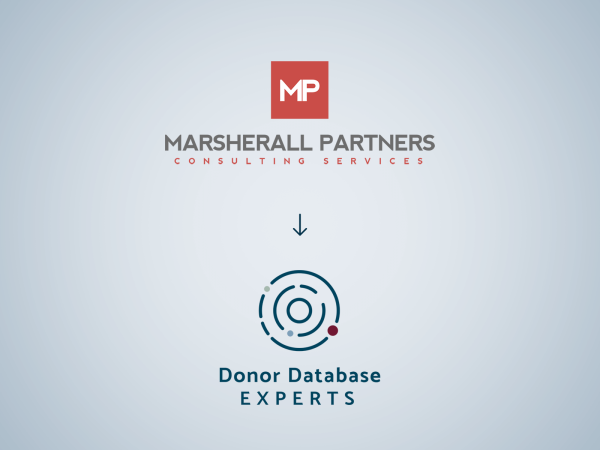Database Auditing for Nonprofits: A Comprehensive Guide
Database auditing helps nonprofits tackle data inaccuracies, outdated records, and structural issues in donor databases, ensuring efficient fundraising operations and stronger donor relationships.
Nonprofits rely heavily on donor databases to manage fundraising efforts, ensure smooth operations, and maintain strong relationships with donors. However, as these databases grow, inaccuracies, outdated information, and structural issues can accumulate, leading to inefficiencies and lost opportunities. Database auditing is the solution to these challenges, offering a structured way to evaluate the health of your data and ensure your fundraising operations function at their best.
This guide will break down the essentials of database auditing, its types, the benefits for nonprofit organizations, common issues uncovered during the process, and how to address them effectively. Plus, we’ll highlight the role a data management consultant can play in optimizing your donor database.

What Is a Database Audit and Why Is It Important?
A database audit is a systematic review of an organization’s database to assess its accuracy, integrity, structure, and overall health. For nonprofits, it typically focuses on donor data, coding, segmentation, and the alignment of data with fundraising strategies.
Why Is Database Auditing Important for Nonprofits?
Nonprofits handle vast amounts of data, from donor records to event participation lists. Over time, these records can become cluttered with errors, duplicates, and outdated information, leading to inefficiencies like failed donor outreach, inaccurate reporting, and wasted resources. A database audit addresses these issues by:
- Identifying outdated or incomplete records.
- Highlighting structural problems affecting database functionality.
- Ensuring compliance with data protection regulations.
- Streamlining operations to maximize fundraising potential.
By maintaining a clean and precise database, nonprofits can achieve better donor engagement, optimize campaigns, and make more informed decisions.

Types of Database Audits
Not all database audits are the same. Different types focus on varied aspects of your database, depending on your organization’s goals and challenges.
Here are the key types:
Data Accuracy Audits
Focus on identifying incomplete or incorrect records, including misspelled names, outdated contact information, and invalid email addresses.
Structural Data Audits
Examine how your database is organized, coded, and segmented. These audits ensure clean hierarchies and functional coding structures for fundraising or engagement.
Workflow and Process Audits
Audit the integration of data into everyday operations, identifying how workflows interact with the database and where inefficiencies can be eliminated.
Fundraising Performance Audits
Evaluate donor trends, segmentation efficiency, and campaign performance to identify missed opportunities and optimize future fundraising efforts.
By tailoring your audit type to your needs, your nonprofit can focus on the areas that matter most.
Benefits of Database Audits
A nonprofit organization that undertakes a database audit can unlock significant advantages. Here are some of the key benefits:
Improved Donor Engagement
Accurate and up-to-date donor records allow you to segment and personalize communications effectively, leading to deeper relationships and consistent donor support.
Increased Fundraising Efficiency
With clean data and better organization, your team can focus on high-value tasks instead of wasting time cleaning up errors or chasing wrong leads.
Enhanced Campaign Performance
High-quality data allows you to analyze donor behavior and performance metrics effectively, enabling you to design campaigns that resonate with your audience and drive results.
Data-Driven Decision-Making
An audit equips you with the insights needed to make strategic decisions, whether launching targeted fundraising efforts or reallocating resources.
Compliance and Security
By ensuring compliance with data regulations and identifying potential risks, database audits protect your organization from legal challenges and build trust with your supporters.
Common Issues Found During a Database Audit
During a database audit, organizations typically encounter a range of issues that hinder their efficiency. Some of the most common challenges include:
- Duplicate Records: Multiple entries for the same donor or contact can skew engagement metrics and distort reporting.
- Outdated Information: Contact information, giving histories, or volunteer records that are no longer accurate affect outreach.
- Structural Issues: Incorrect or inconsistent coding and other issues impact the ability to report, create dashboards, and more.
- Overloaded Database Fields: Extra, unnecessary fields lead to clutter and confusion.
- Security Issues: User groups containing information that is confidential or protected.
- Workflow Obstacles: Inefficient or unclear data management processes create bottlenecks for your team.
Identifying these issues is the first step toward optimizing your database.

How to Correct the Issues Discovered During a Database Audit
Once issues are identified during an audit, the next step is to create a clear action plan to address them. Here’s how to correct common database problems:
Deduplicate Data
Use database tools or software to merge or remove duplicate records. Most donor database systems have built-in deduplication functionalities.
Update Outdated Information
Verify and update donor contact details through outreach campaigns or third-party verification software.
Standardize Coding Systems
Create a clear coding hierarchy to ensure consistency. For example, tag donors by philanthropic interests, prospect classifications, or preferred communication channels.
Streamline Fields
Evaluate which database fields are truly necessary, correct structural issues preventing accurate reporting or dashboard creation, and remove irrelevant data points clogging your system.
Optimize Workflows
Design workflows that define how data is entered, used, and maintained.
Addressing each of these steps ensures your database remains a powerful tool for driving fundraising success.
Hiring a Data Management Consultant to Perform a Database Audit
For nonprofits without the expertise, time, or human resources to conduct a thorough database audit, partnering with a professional consultant can be invaluable. Data management consultants, like the team at Donor Database Experts, specialize in nonprofit database auditing and optimization. Here is how we can assist:
- Comprehensive Database Review: Our audits thoroughly assess your records, coding, structure, and fundraising operations—leaving no stone unturned.
- Actionable Recommendations: We provide a detailed written analysis of areas needing improvement and specific steps to address them.
- Implementation Support: We work hand-in-hand with your team to clean and organize your data, ensuring a seamless implementation of our recommendations.
By engaging a consultant, your nonprofit gains expert insights and support to transform its database into a highly efficient fundraising tool.

Take Charge of Your Database Today
A well-maintained database is the backbone of successful nonprofit operations. By conducting regular audits, your organization can optimize its data, improve donor relationships, and maximize the impact of your fundraising efforts.
If your nonprofit needs guidance in database auditing or is ready to tackle inefficiencies in its data management, the experts at Donor Database Experts are here to help. Contact us today for a consultation and take the first step toward elevating your fundraising success.
New Name - Same Mission. Marsherall Partners is now Donor Database Experts (DDX). We’ve updated our brand to better reflect our sole focus on donor database management for nonprofits—same trusted team, same mission, clearer identity.

